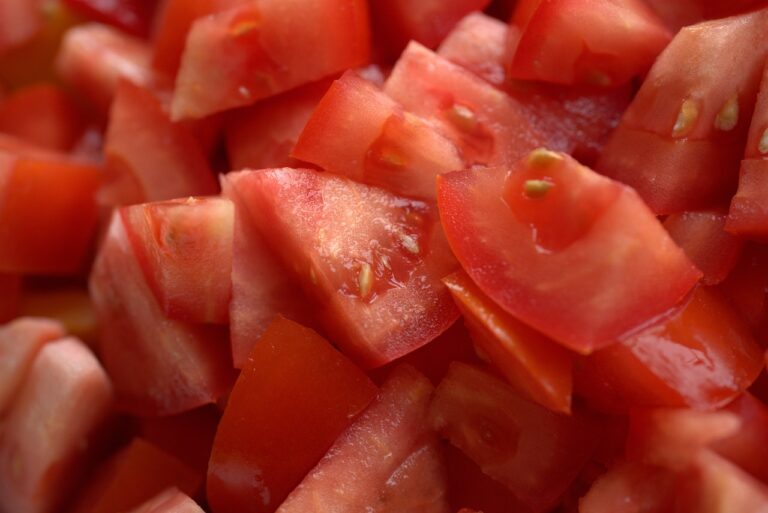Understanding the Relationship Between Nutrition and Rheumatoid Arthritis
One important aspect to consider when managing Rheumatoid Arthritis is the role of nutrition. The foods we eat can play a significant role in either exacerbating or alleviating symptoms of this chronic inflammatory condition. Research suggests that certain nutrients have the potential to either promote or reduce inflammation in the body, which can directly impact the progression of Rheumatoid Arthritis.
A diet that is rich in anti-inflammatory foods such as fruits, vegetables, whole grains, nuts, seeds, and fatty fish can help to reduce inflammation in the body, potentially easing symptoms of Rheumatoid Arthritis. In contrast, a diet high in processed foods, sugar, saturated fats, and trans fats may promote inflammation and worsen the condition. By paying attention to the types of foods we consume, individuals with Rheumatoid Arthritis can take proactive steps towards managing their symptoms and improving their overall quality of life.
The role of diet in managing Rheumatoid Arthritis symptoms
Diet plays a crucial role in managing Rheumatoid Arthritis symptoms by reducing inflammation and providing essential nutrients for the body’s repair and maintenance. Some foods have been found to exacerbate inflammation in the body, worsening RA symptoms, while others have anti-inflammatory properties that can help alleviate pain and stiffness.
Individuals with Rheumatoid Arthritis may benefit from consuming a Mediterranean-style diet rich in fruits, vegetables, whole grains, nuts, seeds, and healthy fats. These foods are known for their anti-inflammatory effects and can help reduce the severity of RA symptoms. Additionally, incorporating foods high in antioxidants, such as berries, leafy greens, and red bell peppers, can provide further relief by combating oxidative stress and reducing inflammation in the joints.
Foods to include in a Rheumatoid Arthritis-friendly diet
Incorporating anti-inflammatory foods into a Rheumatoid Arthritis-friendly diet can play a crucial role in managing symptoms and promoting overall joint health. Including fatty fish like salmon, mackerel, and sardines, rich in omega-3 fatty acids, can help reduce inflammation in the body. These fish are also excellent sources of protein, which is essential for maintaining muscle strength and supporting joint function. Additionally, nuts and seeds such as walnuts, chia seeds, and flaxseeds are packed with omega-3s and antioxidants, providing further anti-inflammatory benefits.
Colorful fruits and vegetables like berries, cherries, spinach, and kale are high in antioxidants and vitamins that can help reduce inflammation and protect cells from damage. Berries, in particular, are known for their potent anti-inflammatory properties and are easy to incorporate into smoothies or yogurt. Moreover, broccoli, Brussels sprouts, and bell peppers are rich in vitamin C, which supports collagen production and aids in maintaining healthy cartilage and connective tissues. By including a variety of these nutrient-dense foods in your diet, you can potentially alleviate Rheumatoid Arthritis symptoms and support your overall well-being.
– Fatty fish like salmon, mackerel, and sardines are rich in omega-3 fatty acids
– Nuts and seeds such as walnuts, chia seeds, and flaxseeds provide anti-inflammatory benefits
– Colorful fruits like berries and cherries are high in antioxidants
– Vegetables like spinach, kale, broccoli, Brussels sprouts, and bell peppers are rich in vitamins C
How does nutrition impact Rheumatoid Arthritis?
Nutrition plays a crucial role in managing Rheumatoid Arthritis symptoms. Certain foods can help reduce inflammation and pain, while others can worsen symptoms.
What role does diet play in managing Rheumatoid Arthritis symptoms?
A well-balanced diet rich in anti-inflammatory foods can help reduce inflammation, pain, and swelling associated with Rheumatoid Arthritis. It can also support overall joint health and improve energy levels.
What are some foods that should be included in a Rheumatoid Arthritis-friendly diet?
Some foods that are beneficial for Rheumatoid Arthritis include fatty fish, fruits, vegetables, whole grains, nuts, seeds, and olive oil. These foods are rich in anti-inflammatory properties and can help manage symptoms.
Are there any foods that should be avoided in a Rheumatoid Arthritis-friendly diet?
Yes, certain foods can trigger inflammation and worsen Rheumatoid Arthritis symptoms. These include processed foods, sugary drinks, red meat, and foods high in saturated fats. It is best to limit or avoid these foods in your diet.
Can a Rheumatoid Arthritis-friendly diet replace medication and other treatments?
While a healthy diet can help manage Rheumatoid Arthritis symptoms, it should not replace medication or other treatments prescribed by your healthcare provider. It is important to work with your healthcare team to develop a comprehensive plan for managing your condition.







